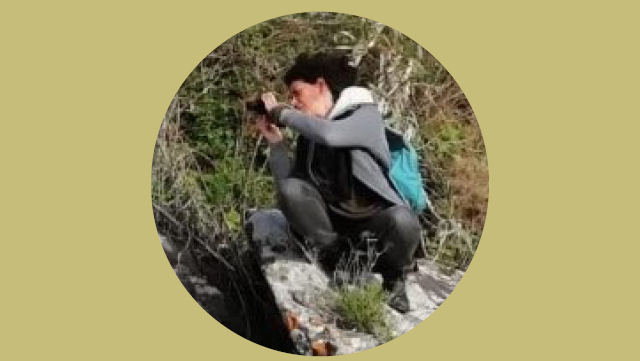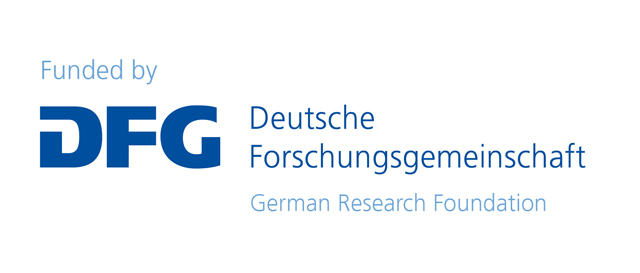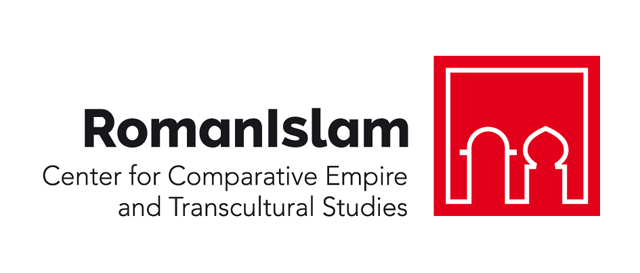Dr. Morgane Uberti
October 2020 - December 2020

Research Project: Date and Power in Late Antiquity: Time Control to Govern (Hispania and North Africa)?
The project carried out at the RomanIslam Center is part of a wider research on dating practices in the Late Antique Mediterranean: dating habits being considered as signs of a certain awareness of time. The richness and diversity of dating practices in Late Antiquity and the High Middle Ages would then show the complexity of the sense of time which appears as manifold if we consider the multiple existing timeframes (e.g. political, religious). This brings up the question of dynamics which drive the dating practices and the articulation of these multiple temporalities therefore expressed, in a world marked by cultural contacts and political upheavals. Within the framework of the question - How to govern? Administrative division and structure - my project deals with the relations between time, power and politic. Concretely, considering in particular the use of the year reign in Hispania, Gaul and North Africa both in inscriptions and handwritten documents, the project raises the question of time management by sovereign authorities (e.g. Byzantine, Vandal, Visigothic, Merovingian). For Late Antiquity such a dating practice was already interpreted as a form of symbolic language of power, a politic act or the manifestation of identity issues. The project nevertheless aims to go further and provide a new reading grid of the uses of the year of reign in relation to the question of “administration”. That is to say whether and how this dating habit could be related to attempts to control social time and thus to a way of governing.
Profile
Since a PhD dedicated to funerary inscriptions (2014, Regards sur les inscriptions funéraires : pratiques, mémoires, identités entre Loire et Pyrénées (IVe-VIIIe s.), Paris IV-Sorbonne), Dr. Morgane Uberti pursued her research on late antique inscriptions from Gaul and more broadly on epigraphic habits in Late Antiquity and Medieval period through personal and collective projects and punctual collaborations. Her involvement in this field has been recently concretized by the implementation of a collective research project dedicated to the Inscriptions from Gaul between Antiquity and Middle Age, co-jointly with C. Treffort (University of Poitiers) and M. Heijmans (CNRS, Camille Jullian Center, Aix-en-Provence). In parallel, she has therefore developed a diachronic approach through crosscutting issues applied to late antique and medieval inscriptions (Program LIMITS) and by her participation in various cases study in collaboration with medievalists. Two years ago, her fellowship at the Casa de Velazquez in Madrid was a turning point in her research: there she developed the foundations of a project which focus on the dating practices in Central Mediterranean from Late Antiquity to Middle Ages in order to address the awareness of time over the ‘longue durée’.
CV
Selected Publications
Uberti, Morgane (2020a), “Un règne sans roi. Le non-dit du temps dans quelques inscriptions de la Gaule alto-médiévale” in: Debiais V. and V. Turner, eds., Words/les mots (13th annual symposium of the International Medieval Society-LAMOP, 30 juin-2 juillet 2016), Paris: Turnhout, 181-208.
Uberti, Morgane (2020b), “Un temps nu. Dater comme acte (épi)graphique per se?” Revue Polygraphe(s). Approches métissées des actes graphiques. Temporalités, 2/2020, 47-55.
Uberti, Morgane (2018), “Écritures enfouies et expériences des temps”, Les vivants et les morts dans les sociétés médiévales (Actes du 48e congrès de la SHMESP), Jérusalem, 4-7 mai 2017, Paris, 105-118.
Uberti, Morgane (2015), “Les sarcophages inscrits entre Loire et Pyrénées, IVe-VIIe siècles: pratiques, formes, contexts”, in: Cartron I., F. Henrion et Chr. Scuiller, eds., Les sarcophages de l’Antiquité tardive et du haut Moyen Age : Fabrication, utilisation, diffusion, Actes des XXXe journées internationales d’archéologie mérovingienne, 2-4 octobre 2009, Bordeaux, 281-301.
Uberti, Morgane (2014), "Église Sainte-Croix, inscription de Mommolenus", in: C. Doulan, Carte Archéologique de la Gaule, 33.2, Bordeaux, 349-350.
Uberti, Morgane/ Trefffort, Cécile (2010), “Identité des défunts et statut du groupe dans les inscriptions funéraires des anciens diocèses de Poitiers, Saintes et Angoulême entre le IVe et le IXe siècle”, in : Bourgeois L.(dir.), Wisigoths et Francs Autour de la bataille de Vouillé (507), Recherches récentes sur le haut Moyen Age dans le Centre Ouest de la France (Actes des XXVIIIe journées d’archéologie mérovingienne), Saint-Germain-en-Laye, 193-213.


